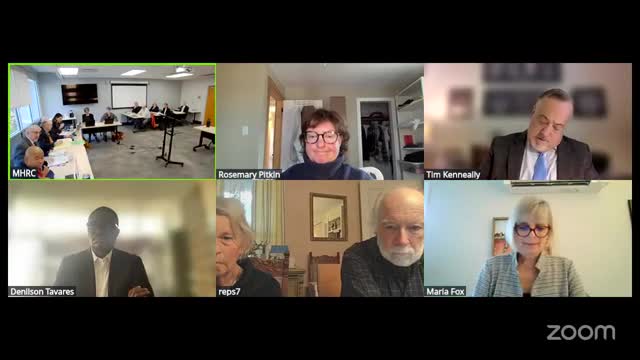Commission splits on whistleblower claim by urgent-care doctor; investigator's report sustained
Get AI-powered insights, summaries, and transcripts
Subscribe
Summary
Dr. Rosemary Pitkin alleged her 2022 termination from ConvenientMD followed repeated written complaints about staffing and patient-safety conditions and a refusal to work shifts lacking an RN.
Dr. Rosemary Pitkin, a physician who worked as a lead provider at a ConvenientMD urgent-care clinic in 2022, alleged she was terminated in retaliation after repeatedly raising patient-safety concerns and refusing shifts that lacked a registered nurse.
Pitkin's attorney described staffing she said produced unsafe conditions: shifts staffed with an underqualified paramedic, very new physician assistants expected to function as a second provider, and productivity quotas that the attorney said forced unsafe volumes of patients. The attorney said Pitkin raised concerns in writing and by email to a vice president of medical directors; "the very next day, doctor Pitkin was fired by the regional manager," the attorney said. The attorney argued temporal proximity, inconsistent stated reasons for termination in the employer's records, differential discipline and departure from written policy supported a reasonable-grounds finding for whistleblower retaliation.
ConvenientMD's counsel told commissioners the company's operations meet industry standards, that the paramedic in question "was able to perform the services that the paramedic was asked to perform," and that Pitkin was terminated for refusing to work and because the employer may terminate probationary employees "with or without cause." Counsel cited Pouchard v. Riverview Psychiatric Center for the proposition that an employee must show the employer lacked knowledge of the problem she reported.
Investigator Jana Reilly told the commission she found Pitkin engaged in protected activity and had a reasonable belief the staffing practices created safety concerns; however, Reilly concluded Pitkin was terminated because she said she would not come to scheduled shifts unless an RN was on duty, and that the employer substantiated that refusal and the operational burden it created. Reilly's report distinguished (a) reports that constitute protected activity and (b) the narrower statutory protection for an employee who refuses to carry out a directive that would "expose the employee or any individual to a condition that would result in serious injury or death." Reilly wrote that, on the evidence, the refusal-to-work standard was not satisfied.
Commission action: The commission considered a motion to adopt the investigator’s recommended finding of no reasonable grounds. The recorded roll-call vote was: Commissioner David — Yes; Commissioner Douglas — No; Commissioner Walker — Yes; Commissioner Sanders — No. Because the vote was tied, the commission referred to and adopted the investigator's finding: no reasonable grounds to believe ConvenientMD unlawfully retaliated against Dr. Pitkin. The commission said it will send the parties a letter confirming the result and next steps.
What was argued and what remains contested: Pitkin's team emphasized an incident dated Nov. 2, 2022, when Pitkin says the clinic saw 63 patients during a 12-hour shift and transferred four critically ill patients to the hospital; counsel for Pitkin said inadequate triage contributed to delays. Respondent counsel disputed that triage was inadequate and emphasized that other clinicians and administrators had not documented a persistent regulatory violation. Investigators and counsel debated whether the company's attendance policy and the employer's treatment of other employees supported pretext.
The commission's action closes the administrative screening stage for Pitkin's file under the investigator's recommendation. The investigator's findings and the record preserve the parties' positions for any subsequent proceedings.
